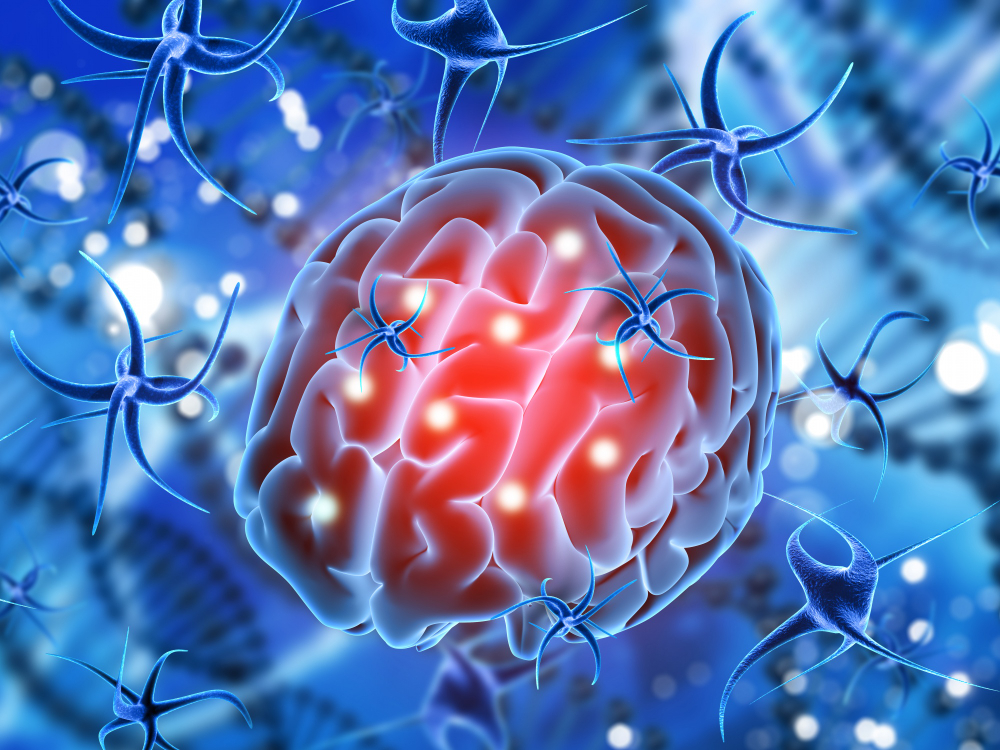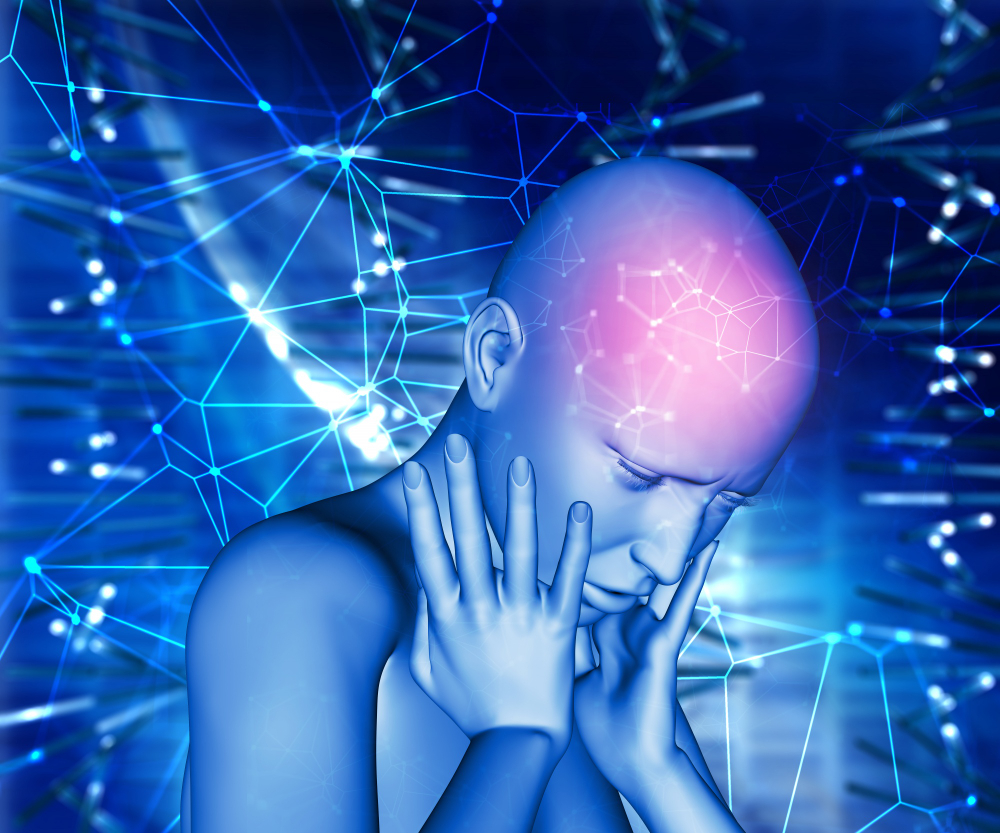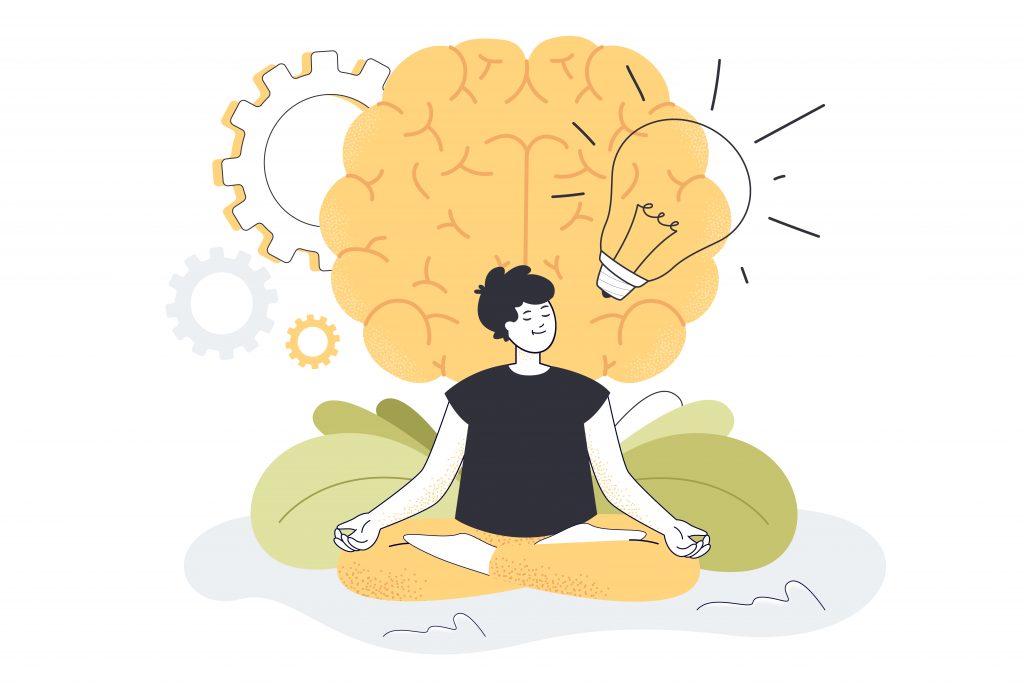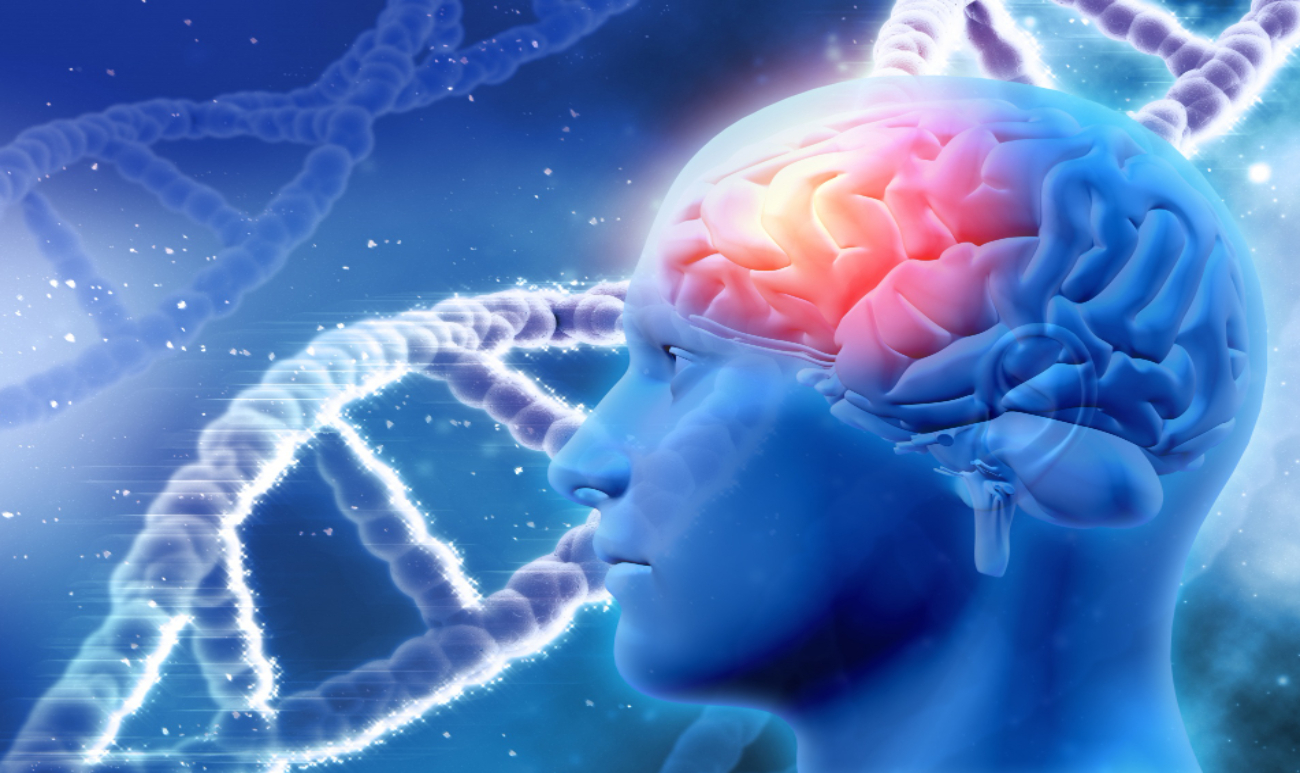No products in the cart.
Balance your Emotion with the help of the Endocannabinoid System
It’s no secret that the modern world is a stressful place. From working long hours to dealing with constant noise and pollution, it can be tough to find some peace and quiet. And when you add the demands of daily life to the mix, it’s easy to see how stress can quickly become overwhelming.
Thankfully, there is a way to help balance your emotions and find peace amidst all the chaos. The Endocannabinoid System is a network of receptors in the body that are responsible for regulating mood, sleep, stress and more. And CBD oil can help support the Endocannabinoid System and keep your emotions in check.
So if you’re looking for a way to reduce stress and restore balance in your life, CBD oil may be just what you need. Check out this blog for more information on how to use CBD oil for emotional balance.
Hormones, Emotions and Endocannabinoid System

Endocannabinoid system (ECS) is a complex network of cannabinoid receptors found throughout the body that regulate a variety of physiological processes including appetite, pain sensation, mood and memory. The ECS is also responsible for the psychoactive effects of cannabis. The ECS is comprised of two primary cannabinoid receptors, CB1 and CB2, as well as the enzymes that produce and degrade cannabinoids, fatty acid amide hydrolase (FAAH) and monoacylglycerol lipase (MAGL).
CB1 receptors are predominantly found in the brain and are responsible for the psychological effects of cannabis. CB2 receptors are found mostly in the immune system and are responsible for the anti-inflammatory and pain-relieving effects of cannabis. The enzymes FAAH and MAGL are accountable for the degradation of cannabinoids.
The ECS is a vital part of maintaining balance in the body. When the system is out of balance, it can lead to various health issues. For example, a lack of balance in the ECS has been linked to anxiety, depression, obesity and chronic pain.
The ECS can be balanced by using cannabis therapeutically. Cannabis contains a variety of cannabinoids that interact with the ECS to restore balance. CBD is a non-psychotropic cannabinoid that helps to restore balance by inhibiting FAAH and increasing levels of Anandamide. THC is a psychoactive cannabinoid that helps to restore balance by activating CB1 receptors.
- Anandamide is often referred to as the “bliss molecule” because it is associated with pleasure and well-being. 2-AG is responsible for mediating stress and anxiety responses.
- Acetylcholine is a neurotransmitter released by the Parasympathetic Nervous System (PNS). The PNS is responsible for calming the body and promoting relaxation. Acetylcholine binds to CB1 receptors to increase the psychoactive effects of THC.
- Serotonin is a neurotransmitter released by the Sympathetic Nervous System (SNS). The SNS is responsible for activating the fight or flight response. Serotonin binds to 5-HT1A receptors to decrease anxiety.
- Oxytocin is a hormone that is secreted by the pituitary gland. Oxytocin binds to OT1 receptors to increase feelings of love and reduce stress.
- Epinephrine is a hormone that is secreted by the adrenal gland. Epinephrine binds to α2A receptors to increase energy and reduce anxiety.
ECS as a bimodal regulator of anxiety
Endocannabinoid system (ECS) is a lipid signalling system in all vertebrate animals. It was discovered in 1992 and named after the plant that led to its discovery, Cannabis sativa. The ECS regulates various physiological and cognitive processes, including mood, memory, appetite and pain. The main bioactive compounds of cannabis are the cannabinoids Δ9-tetrahydrocannabinol (THC) and cannabidiol (CBD).
CB1 receptors are the most abundant G-protein-coupled receptors in the mammalian brain and are activated by THC and CBD. They are also found in other body parts, including the gut and immune system. CB1 receptors are responsible for most of the psychoactive effects of cannabis. The ECS is also regulated by a family of enzymes called monoacylglycerol lipases (MAGLs), which break down the Endocannabinoids anandamide (AEA) and 2-arachidonoylglycerol (2-AG).

There is evidence that the ECS plays a role in anxiety. According to PubMed, The prefrontal cortex’s endocannabinoid system is part of anxious behaviour. Clinical studies have shown that CB1 receptor antagonists, which block the action of THC and CBD, increase anxiety. In contrast, activation of CB1 receptors by THC and CBD reduces pressure. PubMed research suggests that the ECS may be a bimodal regulator of tension, with one mode promoting stress and the other reducing it.
ECS effect on Emotions, Mood and Stress
Endocannabinoid system (ECS) is a group of receptors and chemicals that work together to maintain balance in the body. The ECS is responsible for regulating various functions, including mood, emotions, stress response and more.
Research from the Medical College of Wisconsin in the USA demonstrates how ECS can help people with disorders including anxiety, stress, and depression. One study found that people with depression and anxiety had higher levels of Endocannabinoids than people without these conditions. Additionally, some studies have found that cannabinoids can help reduce stress and improve mood.

The ECS may also play a role in the body’s stress response. One study found that mice lacking a key endocannabinoid had an impaired stress response. Another study found that cannabinoids can help regulate the stress response and prevent stress-related problems.
Therefore, it’s essential to maintain balance in the ECS to promote overall health and well-being.
ECS acts on Metabolism
Endocannabinoid system (ECS) is a network of cannabinoid receptors and ligands that plays a role in various physiological processes. Italy’s University of Bologna demonstrated how the ECS controls food intake, appetite, lipid metabolism and energy balance in the body. Furthermore, the same is supported by studies from Japan’s Kagawa University School of Medicine.
The ECS comprises two cannabinoid receptors, CB1 and CB2 and ligands that bind to these receptors, such as anandamide and 2-AG. CB1 receptors are found in the brain and central nervous system, while CB2 receptors are found in the peripheral nervous system, immune system and gastrointestinal tract.
Ligands that bind to cannabinoid receptors can either be Endogenous cannabinoids (such as anandamide and 2-AG), produced by the body, or Exogenous cannabinoids (such as THC and CBD), which are found in the cannabis plant.
Endocannabinoids regulate food intake by modulating the hypothalamic-pituitary-adrenal (HPA) axis, a key regulator of the stress response.
Endocannabinoids also play a role in lipid metabolism by modulating triglyceride and cholesterol levels in the liver. In addition, endocannabinoids are involved in energy balance by regulating metabolism and energy expenditure.
The ECS also involves various brain functions, including learning, memory and emotion.
Endocannabinoids play a role in emotion by modulating the release of neurotransmitters, such as serotonin and dopamine. In addition, endocannabinoids are involved in the consolidation of memories.
The ECS is a complex system that is still not fully understood. However, research suggests that the ECS plays a key role in various physiological processes, including food intake, appetite, lipid metabolism, and energy balance in the body.
The endocannabinoid system (ECS) is a complex system that plays a role in various physiological processes, including mood, emotion, stress response, metabolism, and more. CBD is a compound found in cannabis that has been shown to help support the ECS. CBD has been shown to be effective in reducing anxiety and promoting relaxation, and it can also help to improve sleep quality. CBD may be worth exploring if you are looking for a natural way to help balance your emotions.
ECS’s influence on Immune Function

The endocannabinoid system (ECS) is known to play a role in maintaining homeostasis in the body. However, its influence on the immune system is not fully understood. Some research suggests that the ECS may help to regulate the immune response, potentially helping to reduce inflammation in conditions like rheumatoid arthritis and Crohn’s disease.
The ECS is a network of receptors and molecules that are found throughout the body. These receptors are thought to interact with cannabinoids, which are compounds found in marijuana (Cannabis sativa). When the ECS is functioning properly, it helps to regulate many important processes in the body, including mood, appetite, metabolism and pain perception.
The University of South Carolina looked into the regulatory effects of the ECS on the immune system in a 2009 study. It was discovered that the ECS inhibits immunological hyperactivity, hence preventing immune illnesses and promoting the body’s ability to heal from immune-related wounds.
While more research is needed to understand the full extent of the ECS’s influence on the immune system, the current evidence suggests that it may play a role in modulating the inflammatory response. This means that the ECS could potentially be a target for new treatments for conditions like rheumatoid arthritis and Crohn’s disease.
Cases of Imbalance in ECS be like,
Research suggests that the ECS may be involved in various conditions and diseases, including mood disorders, pain, inflammation, obesity, diabetes, cardiovascular disease and cancer.
An imbalance in the ECS can disturb the mood, decrease immune function, reduce fertility, cause psychoactivity, and lead to obesity, diabetes, and cardiovascular risk. Systemic inflammation is also a common symptom of an imbalanced ECS.
Many factors can cause an imbalance in the ECS, including stress, diet, and certain medications. If you think you may have an ECS imbalance, talk to your doctor. There are many ways to treat an ECS imbalance, and treatment often depends on the underlying cause.
Balanced body system with the help of Cannabis
The ECS is a crucial part of the human body, and phytocannabinoids like CBD and THC play a key role in encouraging healthier endocannabinoid activity.

CBD, or cannabidiol, is a non-psychoactive cannabinoid that improves immunity, prevents homeostatic disorders and regulates the body’s overall balance. CBD is known to be an effective treatment for a wide range of disorders and diseases, including anxiety, depression, pain, inflammation and seizures.
THC, or tetrahydrocannabinol, is the psychoactive cannabinoid responsible for the “high” associated with cannabis. THC activates the ECS by binding to cannabinoid receptors, which alters key neurotransmitters and produces the various therapeutic effects associated with cannabis.
Cannabis improves well-being and quality of life by helping to restore the body’s natural balance. By supporting the Endocannabinoid system, cannabis helps to regulate a wide range of functions, including appetite, pain sensation, mood and memory.
Wrapping Up
Endocannabinoid system is a network of receptors and chemicals that work together to maintain balance in the body. This system helps to regulate many important functions, including mood, memory, appetite and pain.
The two main cannabinoids useful to the body are THC and CBD. THC is the cannabinoid that is responsible for the psychoactive effects of cannabis. CBD is non-psychoactive and is thought to have many therapeutic benefits. The Endocannabinoid system is believed to be involved in many conditions, including anxiety, depression, pain, inflammation and addiction.
There is a lot of research still to be done on the endocannabinoid system, but it is clear that it plays an important role in our overall health and well-being. From the article, we can conclude that Endocannabinoid system is important for maintaining balance in the body and regulating various functions.





Leave a Reply